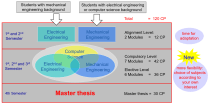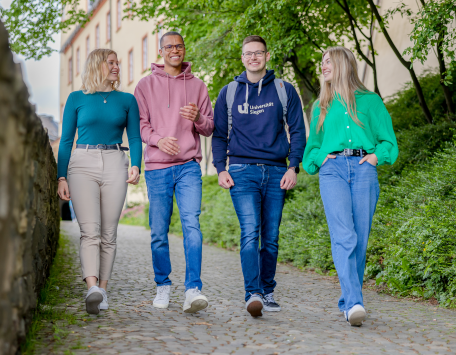Shape Your Future, Starting in Siegen
Mechatronics merges multiple disciplines of engineering research, leading to innovative products and systems with greater abilities despite less mechanical complexity. Progress is being driven by:
- Developments in microcontroller technology
- Improved sensors and actuators
- Modern software technology
The master's degree in mechatronics at the University of Siegen is an interdisciplinary engineering program that includes subjects from mechanical engineering, electrical engineering, and computer science.

Examination regulations/curriculum/module handbooks/internship regulations
Examination regulations (POs) define the basic structures of a degree program (e.g. admission requirements and content to be studied). Students are automatically subject to the current version of their PO when they enroll for their first semester. This means that even if the PO changes during your studies, the original version according to which you enrolled remains valid (provided the PO does not expire).
The respective study plan represents the recommended model course of study in the individual subjects and is part of a PO.
Supplementary regulations and details on the individual modules to be studied can be found in the module handbook (e.g. requirements for taking an examation or information on the content of the modules/events, ...).
The internship regulations define the conditions under which the compulsory or optional internships must be completed.
We recommend that you at least consult the study plan for your degree program before the start of lectures to ensure that you know which modules are planned at the beginning of your studies.
Why choose Mechatronics at the University of Siegen?
- Interdisciplinary engineering degree program
- Broad engineering expertise - design and development of new innovative mechatronic systems
- Excellent career prospects and a wide range of employment opportunities
- Possibility to continue in doctoral programs
- Degree program built for tomorrow



